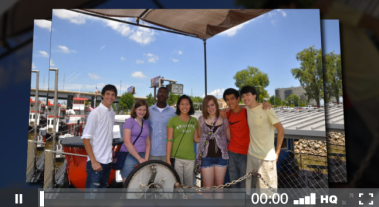Looking over the 2010 update to the National Educational Technology Plan, I’m excited to see that the authors recognize and promote the value of social networking technologies in education. The community of teachers and learners that I connect with through sites like Twitter, Facebook, and Linked In is in the thousands. The value that instant access to these folks brings is incalculable.
One of the recommendations is that professional educators
Leverage social networking technologies and platforms to create communities of
practice that provide career-long personal learning opportunities for educators within and across schools, preservice preparation and in-service educational institutions, and professional organizations.
The report goes on…
Social networks can be used to provide educators with career-long personal learning tools and resources that make professional learning timely and relevant as well as an ongoing activity that continually improves practice and evolves their skills over time. Online communities should enable educators to take online courses, tap into experts and best practices for just-in-time problem solving, and provide platforms and tools for educators to design and develop resources with and for their colleagues.
Unfortunately, my current institution is blind to the value that comes from access to such resources. Twitter, Facebook, Linked In, and many other sites are blocked for employees on some network segments. Where we can reach these resources, we have been warned very sternly not to. Consider this message from my institution’s president about sites such as Facebook:
Beginning tomorrow, we are asking our IT Department to give us lists of all [college] employees who are on these and other social networks. In turn, we will contact those employees and require that they submit to their supervisors and then to their up line vice president a written justification for this use and a detailed business purpose for it. Then, by reference to this memo, we are requesting that our IT department conduct random checks each week of employees logged into social network sites and these employees will be contacted and required to submit to their supervisors and then to their up line vice president a written justification for this use and a detailed business purpose for it. Most use of social networks by employees cannot be justified by a business purpose and is classified as personal use which is prohibited.
How do your schools treat social media? What approaches have you used to soften the stance of an otherwise progressive administration on this issue? Is this a battle worth fighting?
I’d better sign off before the Gestapo find out that I’ve been blogging… If you wish to reach me at work, I’d recommend sending a fax.
PS: This blog post came out after I wrote this entry. It’s a perfect example of how professional educators are using social media. Give it a read.










